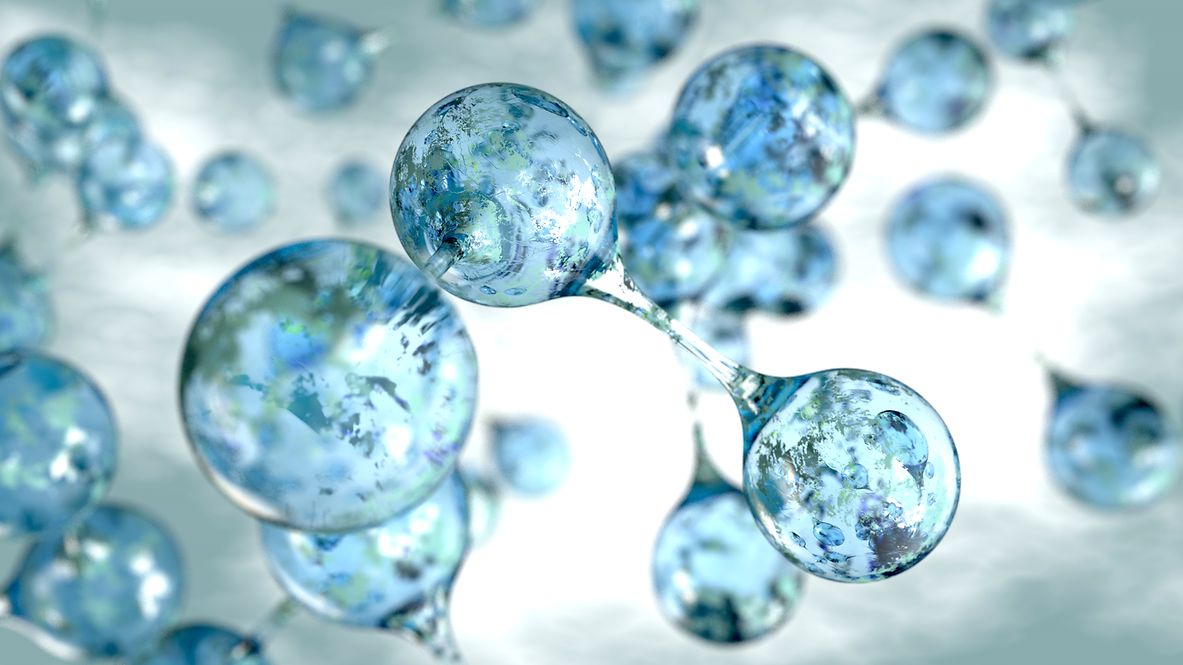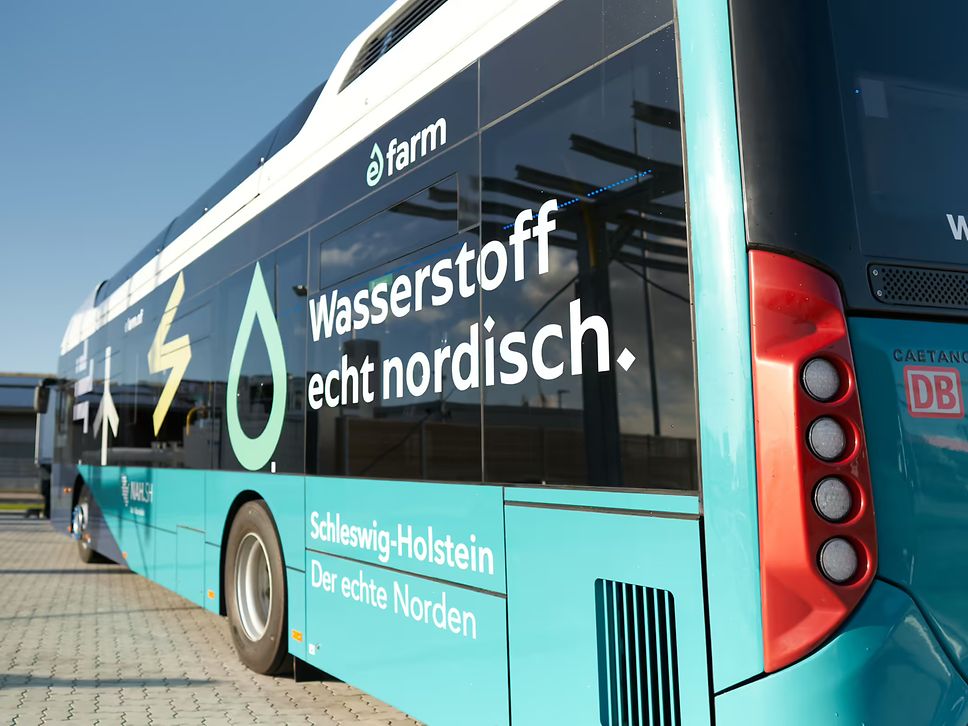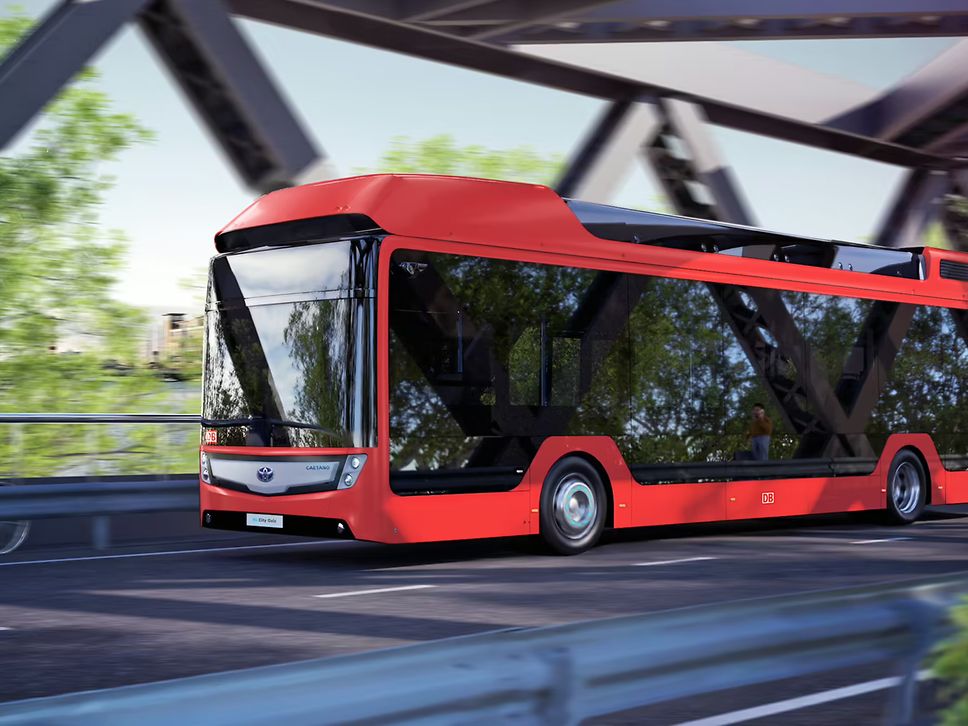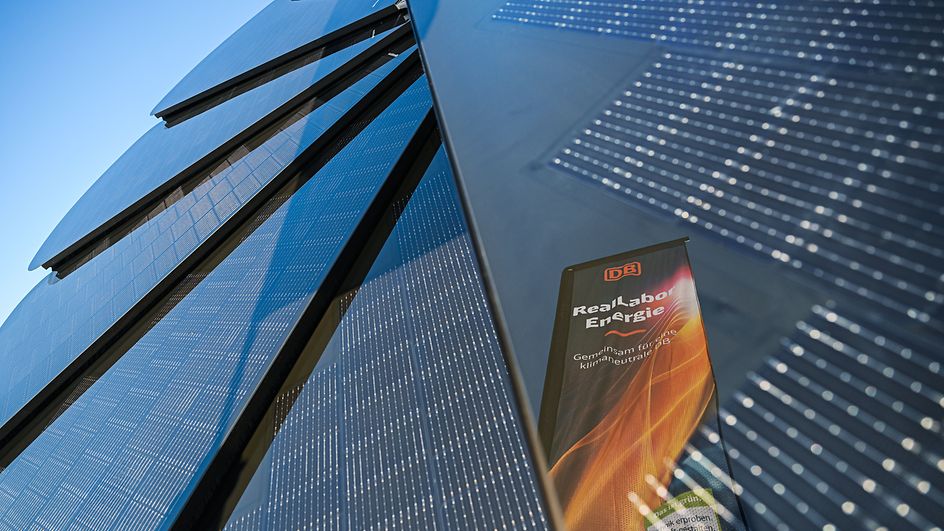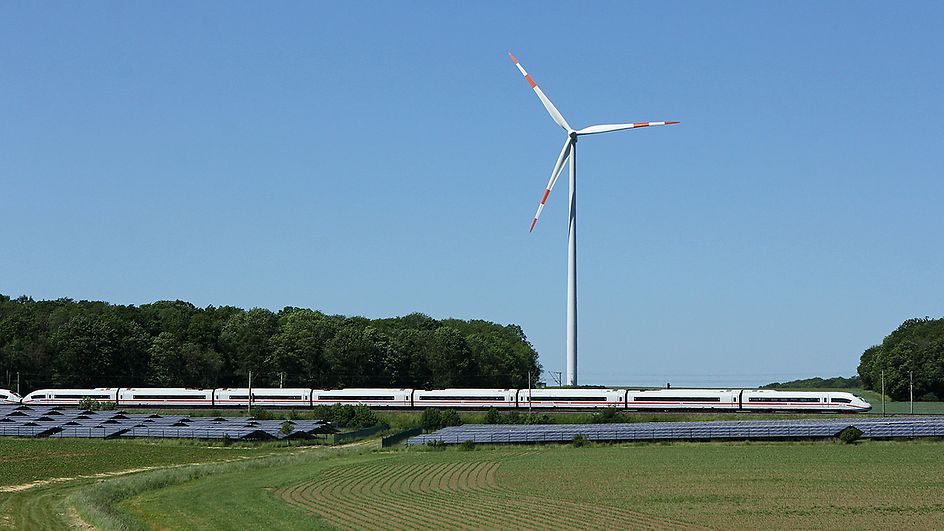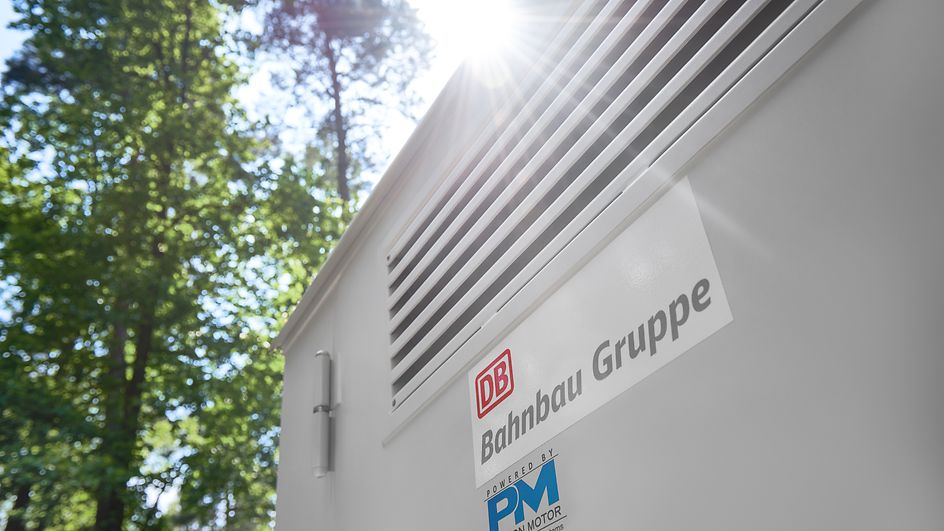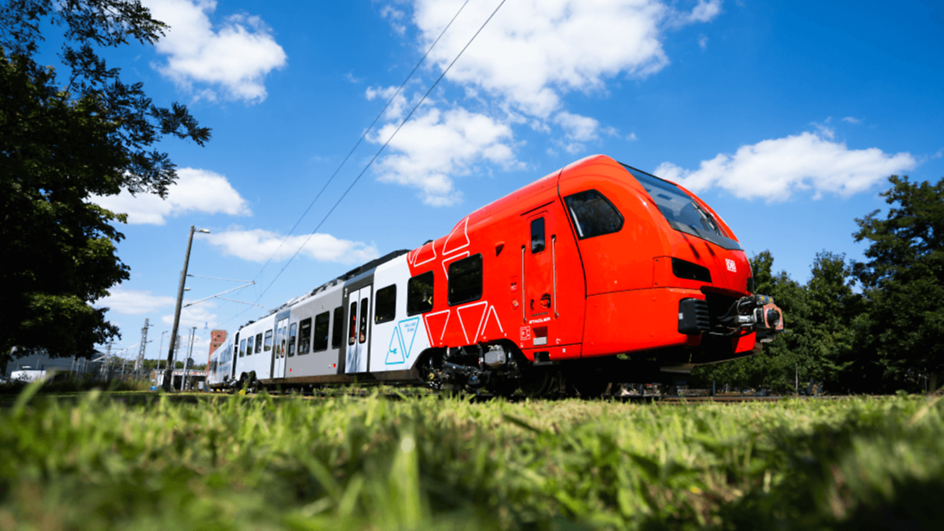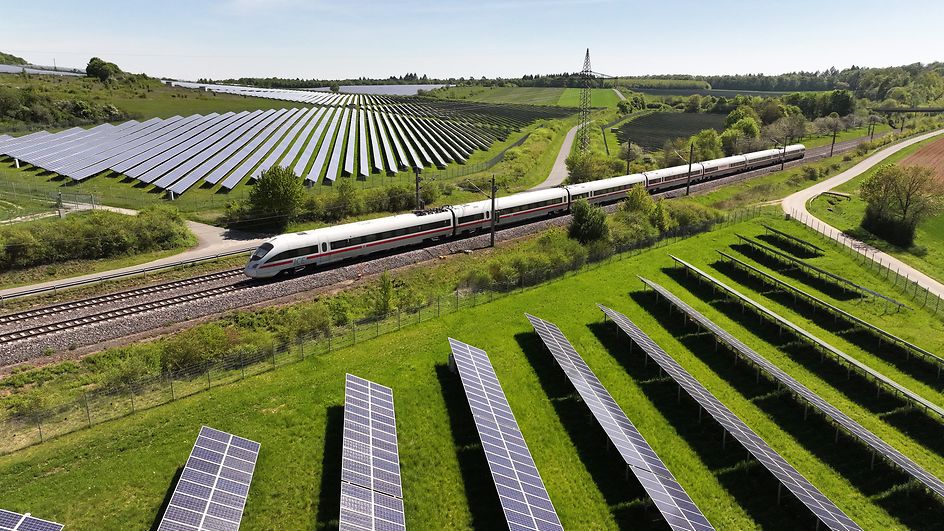Together with its partners, Deutsche Bahn is developing and testing climate-friendly solutions for the transport of tomorrow — for example, the use of green hydrogen.
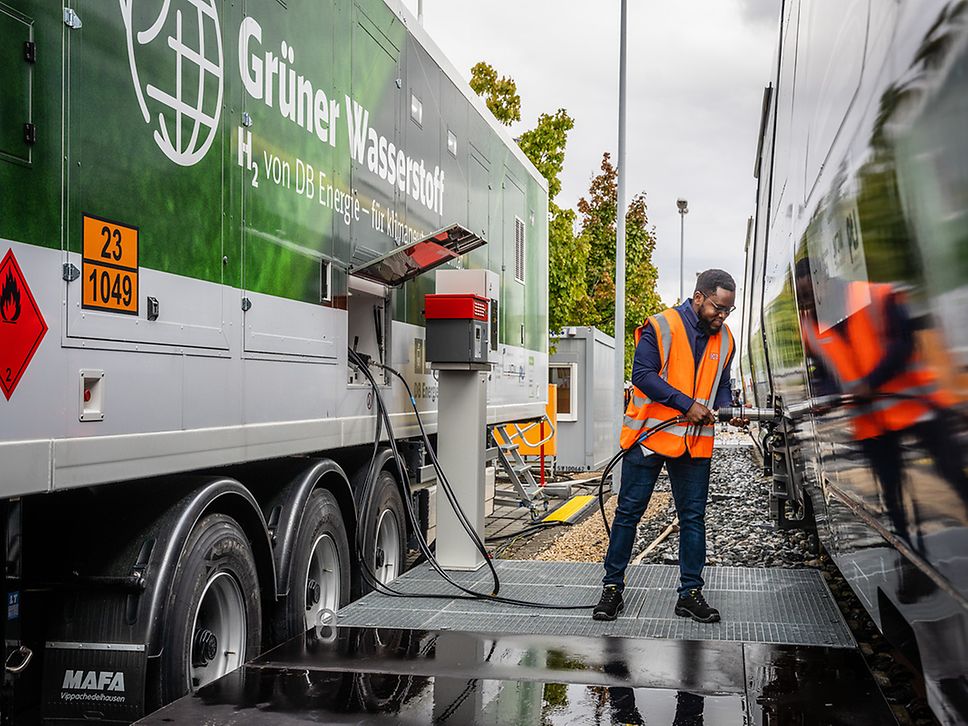
Climate-friendly refueling infrastructure
To test hydrogen supply for trains, DB Energie developed an innovative solution including a mobile hydrogen refueling station. Green hydrogen is produced on-site using renewable electricity, stored in a mobile tank, and conditioned and cooled in an adjacent tank trailer before refueling. Communication between train and station allows pressure-controlled refueling tailored to the vehicle, ensuring optimal refueling time and rapid return to service.
Using this infrastructure, DB Energie won a tender from Bayerische Regiobahn (BRB) and now supplies Bavaria’s first hydrogen train with green hydrogen. A hydrogen station and mobile storage trailer were built in Augsburg. The two-part hydrogen train began passenger service at the start of 2024.
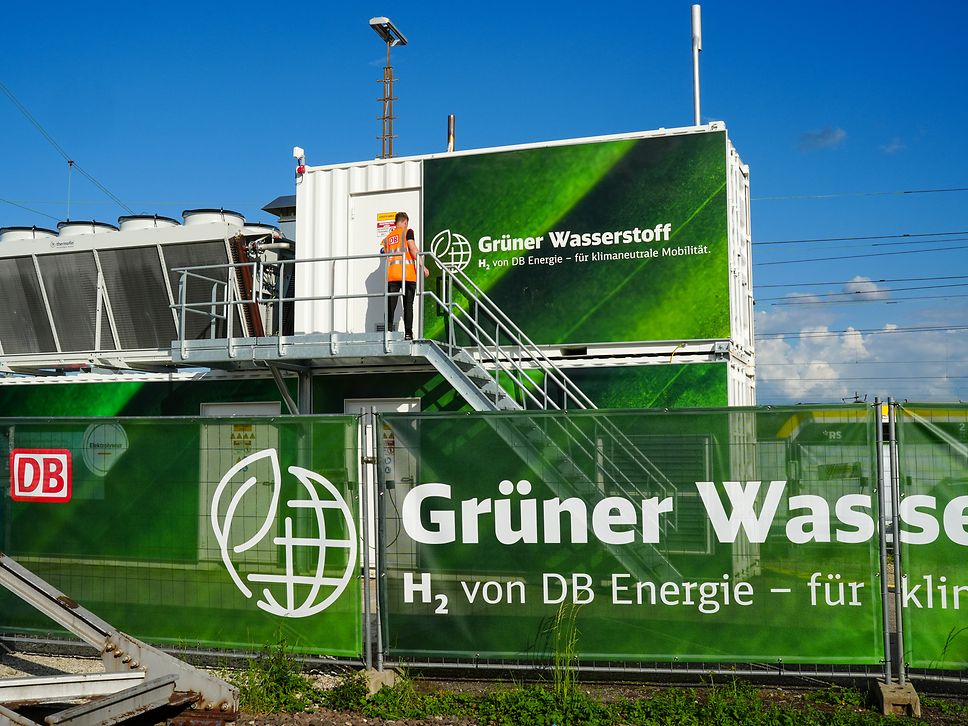
Innovation Hub provides green electricity directly to the overhead line
At the Tübingen Innovation Hub, DB Energie also tests other future energy supply technologies. A key focus is a technical interface to the overhead line: the so-called sector coupler connects the hydrogen production system with the overhead line and a battery storage unit, allowing renewable energy to be fed directly into the traction power network. This helps DB learn how to respond flexibly to “dark doldrums” — days with little sun or wind, resulting in insufficient renewable electricity production.
H2goesRail: Hydrogen system for rail
Under the name “H2goesRail,” Deutsche Bahn, together with Siemens Mobility, tested a completely new hydrogen system for rail starting November 2020. The project included a newly designed hydrogen station by DB Energie and the Siemens-developed hydrogen train Mireo Plus H. Until the end of 2024, the new hydrogen drive and supply system were tested under operational conditions.
The project was funded by the Federal Ministry of Transport (BMV) as part of the “National Innovation Program for Hydrogen and Fuel Cell Technology” and completed in March 2025. The goal was to make hydrogen technology practical for regional passenger rail. The Siemens-developed Mireo Plus H hydrogen fuel cell train was built, approved, and extensively tested for the first time. The hydrogen supply infrastructure developed by DB and its interaction with the train were also rigorously evaluated.
Climate-friendly hydrogen fleet in regional transport
Together with the Rhein-Main-Verkehrsverbund (RMV), DB subsidiary “start” has been operating the first hydrogen trains in Hessen since December 2022. The Alstom Coradia iLint trains use a hydrogen fuel cell to generate electricity for propulsion. They are particularly environmentally friendly, emitting only water vapor and heat, and operate almost silently, reducing noise along the routes.
Initially, the hydrogen trains ran on four partially non-electrified routes in the “Taunus subnetwork” of the Rhein-Main area. Some trains were temporarily replaced in 2025 by conventional diesel locomotives due to technical adjustments needed for the fuel cells. After revision, the entire hydrogen fleet is planned to return to service.
Hydrogen buses at DB Regio
DB is also promoting climate-friendly transport on roads. In Nordfriesland, DB subsidiary Autokraft operates two local zero-emission hydrogen fuel cell buses in a pilot project around Niebüll and Husum. The buses, from Portuguese manufacturer CaetanoBus, have a range of up to 400 kilometers and are refueled with green hydrogen produced from excess wind power at two public stations. The project is called “eFarm.”
In Friesland county, five hydrogen buses also bring travelers to their destination in a climate-friendly way. DB subsidiary Weser-Ems-Bus manages procurement, operation, and maintenance. Refueling occurs at a hydrogen station in Schortens. Both buses and the station are part of the “HyFri” project, aiming to expand the local hydrogen economy. “HyFri” stands for Hydrogen – Friesland.
Additionally, a framework agreement with CaetanoBus was signed for around 60 hydrogen buses. Vehicles are being delivered gradually since early 2024 and operate in Lower Saxony and Schleswig-Holstein. Advantages include fast refueling compared to battery-electric buses and a range of up to 550 kilometers.

